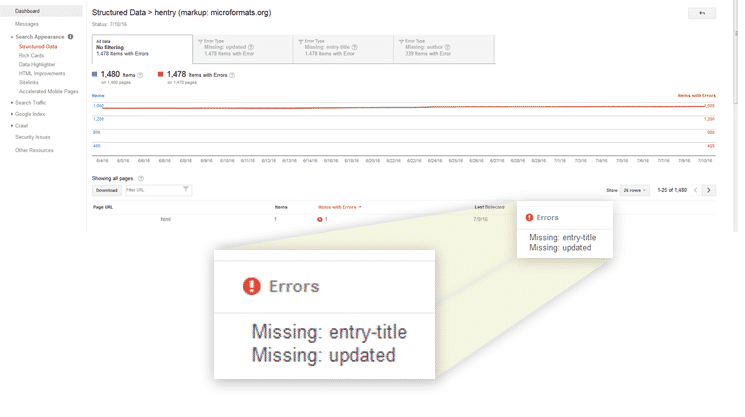For those of us lucky enough to have grown up along with the Internet, the potential of Google today seems limitless. Entering long, vague search queries into the search engine usually, and seemingly miraculously, finds the results you were looking for. For example typing in “oh, ah, ah, ah, ah” will bring up the lyrics and videos of Disturbed’s – Down with the Sickness. This is no small accomplishment, some humans can’t even come up with results that effectively when provided with lyrics and no music. Although Google is brilliant with finding the results intended by the user it is able to do this because of Structured Data.
According to Google Developer’s Guide: Introduction to Structured Data: ‘structured data refers to any kind of high level of organization, such as information in a relational database’ (Google Guide p.1). More simply, it is a way of organizing data. When information is organized or ‘structured’ the search engine can read it more clearly and then display it in more creative ways. Structured data not only allows Google to crawl the web better and more efficiently but it also helps the search engine understand the content.
For all those using WordPress as a CMS there are important things you should be doing with your structured data in order to ensure your visibility is hitting its peak potential. WordPress could be causing problems with Webmaster Tools – now called Google Search Console. It has been discovered that WordPress shares incomplete structured data to Google’s search spiders. Peter Ehat of Accelerator Marketing claims the data is incomplete because including hentry class or hcard is the default for WordPress’s posts if you do not also proper entry title, author and updated designations to your markup there will be errors in the Google Search Console (Ehat, 2013). Hentry is a way to style a site so it shows up more on RSS feeds or Atom Feeds. Google Webmaster tools reports hundreds of structured data errors when using it. It associates the Data Type and corresponding error with taxonomy pages.This may not affect your organic rankings too greatly but it is easy to fix – and the fix will have a positive effect on your rankings.
If you are unsure what these errors look like or how to find them you should find them under Search Appearance > Structured Data.
The problem here is that hentry class is being used but it is only sending a partial signal to Google. In order to fix this it can be as simple as “adding span tags to your posts where the data shows up, complete with the proper CSS class for each (Ehat, 2013).” Search your site files in: wp-content/themes/{mytheme} directory (where {mytheme} is the name of your theme).
The issue may also be caused by multiple files in your site, there multiple files will need to be updated. In most cases the ‘hentry labeled element can be found in your single.php template’ (Ehat, 2013).
The following is an example of changings or updating the files in order for Google to receive the structured data signals from your website:
On your page template (single.php) you have a tag containing the title like this:
<h2> <?php the_title(); ?> </h2>
Switch the code to include a class with an entry-title:
<h2 class="entry-title"> <?php the_title(); ?> </h2>
This makes the entry title markup data appropriate to the information.
After you have fixed the entry title, fix the author error by finding:
<? php the_author(); ?>
Change this to:
<span class="vcard author post-author"> <span class="fn"> <?php the_author(); ?> </span> </span>
Wrap two span tags on inside the other in order to satisfy Google’s data demands.
Finally, find this:
<? php the_date(); ?>
And change it to this:
<span class="post-date updated"> <?php the_date(); ?> </span>
If you are still unsure about your structured data Google has a testing tool found here: Testing Tool

